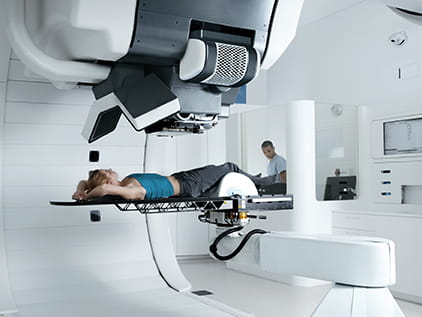Childhood Cancer Treatment
To most effectively treat childhood cancer, including adolescent and young adult blood and marrow transplant, doctors look at many factors before choosing how to proceed. Deciding on the best childhood cancer treatment depends on the type of cancer and the cancer stage, as well as the child’s age and general health.
Adolescent and young adult cancers
About 89,000 adolescents and young adults (ages 15 to 39) are diagnosed with cancer each year in the United States. Certain cancers, such as primary bone cancer, Hodgkin lymphoma and testicular cancer, are most frequently diagnosed among adolescents and young adults. Lymphomas and thyroid cancer are the most common cancers among adolescents and young adults ages 15 to 24. Among those ages 25 to 39, breast cancer and thyroid cancer are the most common.
The most common cancers in adolescents and young adults are:
- Brain and other central nervous system tumors
- Breast
- Cervical
- Colorectal
- Leukemia
- Lymphoma
- Melanoma
- Sarcomas
- Bone
- Soft tissue sarcoma
- Testicular
- Thyroid
The most common treatments for childhood cancers include:
- Proton therapy
- Radiation therapy
- Surgery
Proton therapy is considered the leading-edge form of radiation treatment currently available. This technologically advanced delivery method causes much less damage to surrounding healthy tissue than traditional radiation therapy, lowering the risk for developing secondary cancers and long-term side effects.
We also provide the latest surgical and radiation options that have shown promise in effectively treating certain childhood cancers. We offer the most advanced radiation treatments for children and provide minimally invasive and complex pediatric surgical procedures.
Childhood cancers treatment options
All the resources of The University of Kansas Health System are available to our pediatric, teen and young adult patients:
- Orthopedic surgery: We provide expert diagnosis and treatment for tumors within muscles, ligaments and bones.
- Pediatric neuropsychology
- Pediatric neurosurgery: Our pediatric neurosurgeons are experts in diagnosing and treating brain tumors and spinal cord problems in children.
- Proton therapy: Proton therapy is the leading-edge form of radiation treatment currently available. Proton therapy is a form of external beam radiation that uses energized protons to deliver radiation to a tumor.
- Radiation oncology: We perform some of the region’s most advanced radiation treatments for children and adults on site.
- Pediatric surgery: Our procedures include both minimally invasive outpatient surgeries and complex inpatient surgeries.
- Second opinion: A second opinion can be an important resource for adult and pediatric patients.

Proton therapy in Kansas City
Receive lifesaving proton therapy treatment from the region's most experienced team of proton experts.
Life after childhood cancers
Children with cancers or blood disorders often require long-term follow-up care. Our pediatric survivorship specialists offer comprehensive diagnosis, treatment, fertility preservation, and social and emotional support services for infants, children, young adult blood and marrow transplant survivors, adolescents and young adults.
The pediatric palliative care team provides services to meet the physical, psychological, social, educational and spiritual needs of children who have:
- Chronic illnesses (illnesses that last 3 months or longer)
- Life-limiting conditions
- Parents, siblings or other family members with serious illnesses
These websites may also have information that can help:
- Children’s Miracle Network: A nonprofit organization dedicated to saving and improving the lives of children by raising funds for children’s hospitals across North America.
- CureSearch: The world’s largest childhood cancer research organization, the Children’s Oncology Group and the National Childhood Cancer Foundation are united through their mission to cure childhood cancer.
- Dream Street Foundation: The Dream Street Foundation provides a camping program to kids, teens and young adults with chronic or life-threatening illnesses.
- Flashes of Hope: This nonprofit organization is dedicated to creating uplifting portraits of children fighting cancer and other life-threatening illnesses.
- National Cancer Institute: Established under the National Cancer Institute Act of 1937, NCI is the federal government’s principal agency for cancer research and training.
The University of Kansas Cancer Center does not assume responsibility for any of the information posted on these sites.

More options, more hope
Many new therapies are available through clinical trials. Find out how you may benefit from a clinical trial, and what it can do for others.
Start your path today.
Your journey to health starts here. Call 913-588-1227 or request an appointment at The University of Kansas Cancer Center.